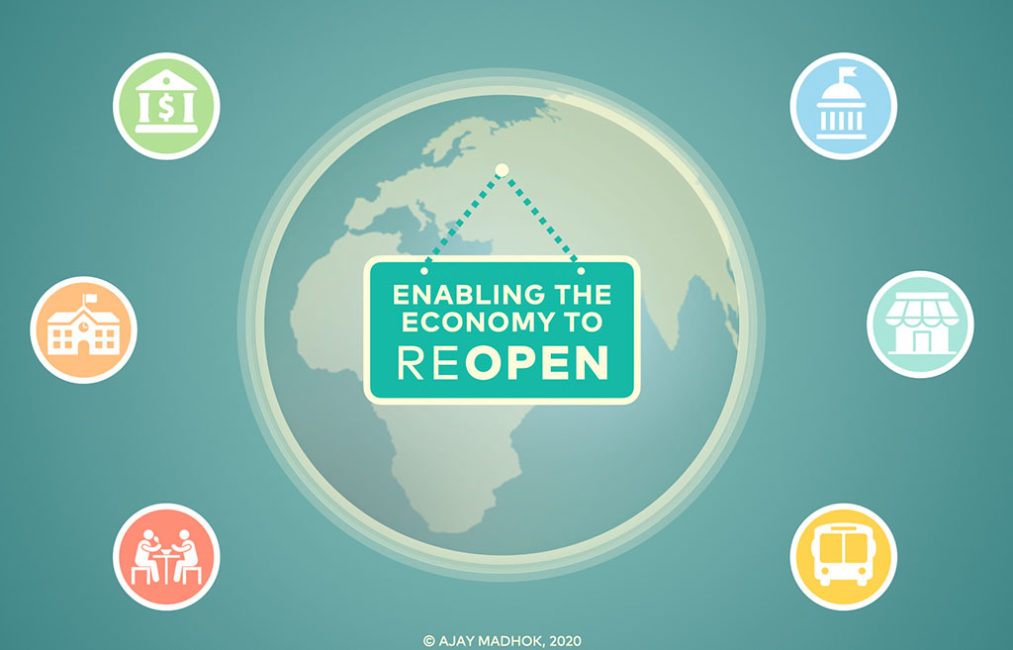
Enabling The Economy To Reopen
Jump starting the economies around the world is one of the biggest challenges we have today. mediaX Distinguished Visiting Scholar Ajay Madhok shares his expertise and insights on how to get things moving again.

Changing Patterns of Interaction
Getting computers to do our bidding has always been a bit mysterious to those of us not steeped in machine code, operating systems, and programming. mediaX Distinguished Visiting Scholar Susan Stucky explains why and how that has changed.
Human-Robot Interaction through the Lens of Learning and Control
May 12, 2020
Machine learning and control theory have made substantial advances in the field of robotics in the past decade. However, there are still many challenges when studying robots interacting with humans. Dorsa Sadigh continues the mediaX webinar series "Thinking Tools for Wicked Problems", and will discuss her insights on this issue.
Robotics and AI for COVID Resilience
April 28, 2020
From the mediaX webinar series “Thinking Tools for Wicked Problems”, Neil Jacobstein will cover some of the current uses of AI in addressing COVID-19, focusing on large scale collaborations such as the XPRIZE Pandemic Alliance, the Kaggle COVID-19 Open Research Dataset Challenge, and many team efforts to develop drugs and vaccines.
Surmounting Data Barriers on Global Health Solutions
April 14, 2020
Around the world, people want to get back to work safely and responsibly. However, strategies for rebooting local, national and global economies are throttled by inadequacies in data and their networks. This event kicks off the mediaX webinar series "Thinking Tools for Wicked Problems", and Marsali Hancock will discuss her insights on this important issue.

3 Algorithmists Meet Robin Hood
Bruce Cahan, a lecturer in Stanford’s School of Engineering and mediaX Distinguished Visiting Scholar Alum explains the roles of amplifiers, receivers and the true importance of tuners when dealing with Artificial Intelligence and Machine Learning.
Designing In-situ Interaction with Ubiquitous Robots
January 31, 2020
Lawrence Kim is a PhD candidate in Mechanical Engineering at Stanford University where he is advised by Sean Follmer. His research lies at the intersection of human-computer interaction, robotics, and haptics with a focus on studying the interaction with multi-robot systems. He has received best paper and best paper honorable mention awards at CHI and UIST, and a Fast Company's honorable mention award in Innovation by Design. He is also a recipient of a Samsung Scholarship.
Research at the Service of Free Knowledge
January 24, 2020
Leila Zia is a Principal Research Scientist and the Head of the Research team at the Wikimedia Foundation, the foundation that operates Wikipedia and its sister projects. Her research interests include quantifying and addressing the gaps of knowledge in Wikipedia and Wikidata, understanding Wikipedia's readers, and studying the contributor diversity on Wikimedia projects. She received her PhD from Stanford University in Management Science and Engineering.

New Research Projects Focus on Rationalizing Human Learning Experiences
Three innovative projects with great potential for long-lasting impact on learning sciences have been funded by mediaX at Stanford University.